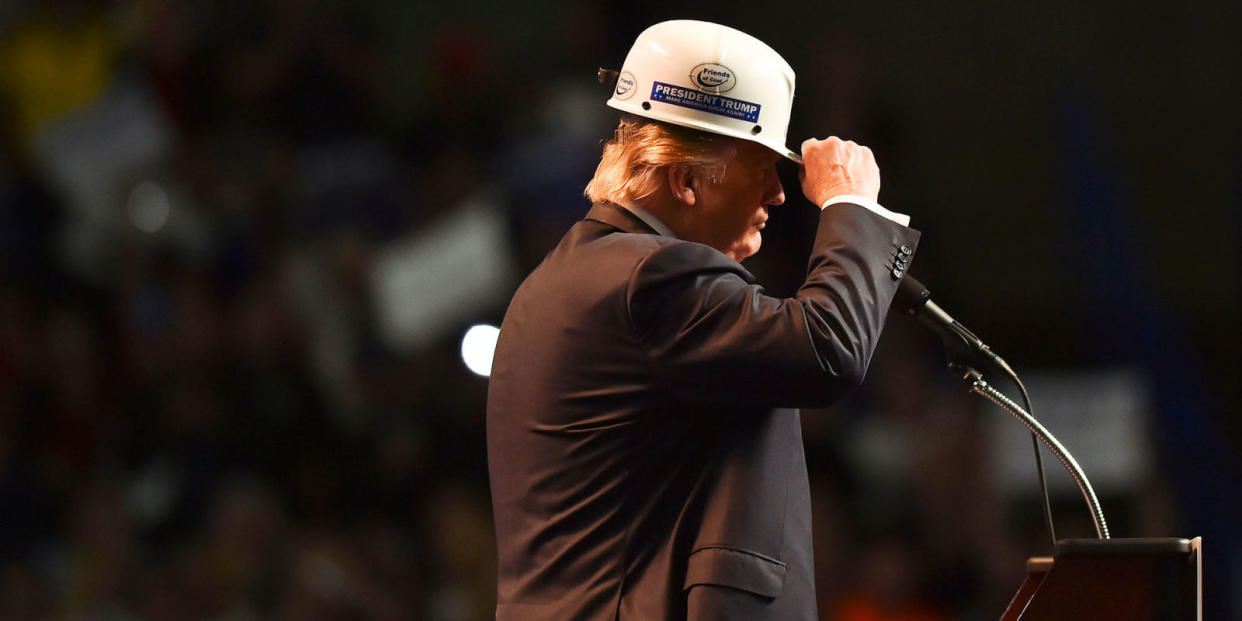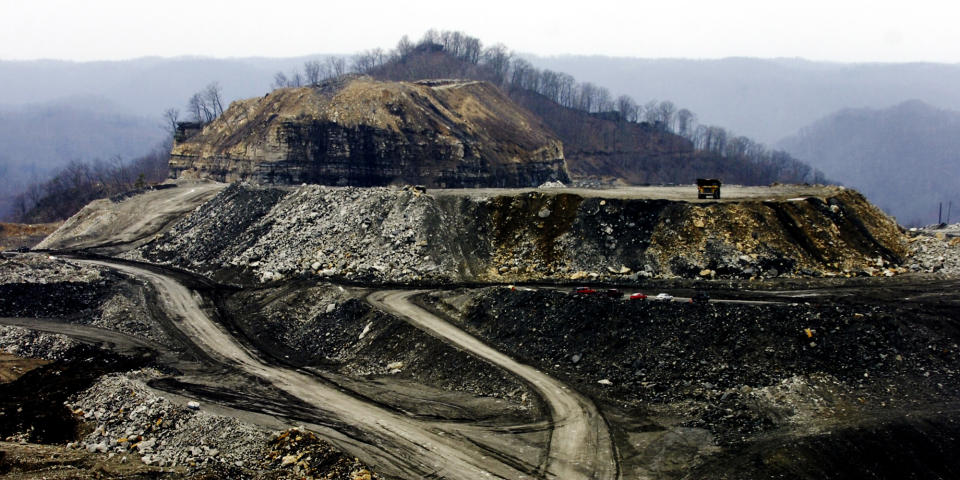Why Study Problems When You Can Simply Ignore Them?

The weirdly iconic role that coal mining played in the last election, and the weirdly iconic role it has played in the administration's rhetoric since then, continues to amaze and astound. In a time in which the reliance on fossil fuels and the subsequent emissions of CO2 have endangered the future of the planet, a successful presidential candidate ran on bringing back a dying industry that, even in its salad days, killed and maimed people with distressing regularities, an industry in which the labor strife was the most serious armed conflict between Americans since Appomattox, and an industry that crippled the economy of several states. This president* ran on the most pro-coal platform of any presidential candidate since Theodore Roosevelt stepped in to mediate the coal strikes in 1905. It was as though we were living through some sort of presidential re-enactors convention.
Of course, in the real world, the coal industry continues to be dangerously unhealthy and environmentally ruinous. So, naturally, having handed environmental policy over to people like EPA director Scott Pruitt, an extraction industry sublet, the way to solve these perennial problems with coal is not to study them any more. The Charleston Gazette-Mail seems somewhat stunned by this development.
In an August 18 letter, the U.S. Department of the Interior's Office of Surface Mining Reclamation and Enforcement informed the National Academies of Sciences, Engineering, and Medicine that it should cease all work on a study of the potential health risks for people living near surface coal mine sites in Central Appalachia. The letter states that the Department has begun an agency-wide review of its grants and cooperative agreements in excess of $100,000, largely as a result of the Department's changing budget situation.

Mountaintop removal is probably the worst possible form of coal mining. It is a tantrum of a process that has been known to unleash untold poisons into the water tables in surrounding areas. A month ago, a researcher talked to the National Academy of Sciences and told that panel that enough studies have been conducted to conclude that mountaintop removal mining threatens the health and safety of citizens living in and around the coalfields.
"We know enough," researcher Michael Hendryx told the panel during a meeting in Washington. "If all we do is call for more research, we're asking people to be research subjects without their consent." While at WVU, Hendryx became a target for coal industry criticism when he published dozens of peer-reviewed papers that found coalfield residents living near mountaintop removal operations faced increased risks of cancer, birth defects and premature death, among other health problems. The National Academy of Sciences, with funding from the U.S. Office of Surface Mining Reclamation and Enforcement, is conducting a two-year study of the issue, an exercise that in many ways amounts to a review of scientific papers that Hendryx either authored or inspired with his work at WVU. Hendryx, who is not on the academy panel, now is an assistant professor of public health at the University of Indiana Bloomington.
The project was announced in August 2016 and funding was in place before the Donald Trump administration - which has promised to roll back regulations on the coal industry - took office. State Public Health Commissioner Dr. Rahul Gupta and former state Department of Environmental Protection Secretary Randy Huffman had asked the U.S. Interior Department for help on the issue, and Interior's OSM provided $1 million in funding for the academy review. West Virginia political and governmental leaders have mostly either ignored the growing body of science on mountaintop removal's health effects or tried to belittle the work. Coal industry officials have, likewise, attacked the studies, funding a large effort to discredit the work.
But, if you don't study something, it doesn't really exist. The damage already done to this country and its institutions is going to take decades to fix.
Respond to this post on the Esquire Politics Facebook page.
You Might Also Like

